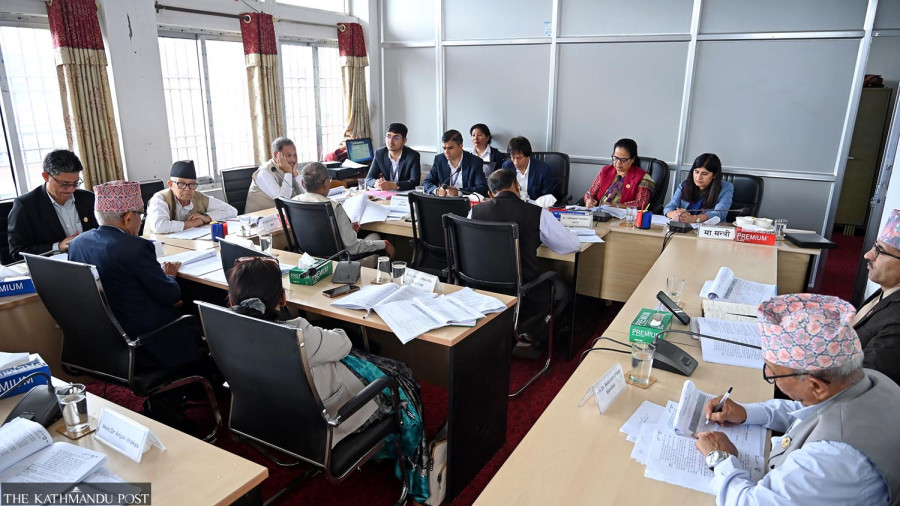National
Upper house nears civil service bill deadline, but no deliberations on contentious issues yet
Big parties are still divided over the bill’s controversial cooling-off period clause.
Post Report
Even as just four days remain until the deadline for the National Assembly to decide on the Federal Civil Service Bill, the Legislation Management Committee has yet to start deliberations on the contentious issue on it.
On June 29, the House of Representatives endorsed the bill by majority vote and dispatched it to the upper house three days later. The upper house must decide on the bill by September 2, as mandated by the Constitution of Nepal, which says a bill originating in the House of Representatives must be decided by the House in two months.
The bill has received 130 amendments from 46 lawmakers in several sections including the one related to the cooling-off period for top bureaucrats immediately after their retirement or resignation. Three major parties have three different positions when it comes to the cooling-off period. The ruling CPN-UML wants the removal of the provisions allowing the civil servants to take any constitutional or other appointments immediately after they retire or resign.
The CPN (Maoist Centre), the largest party in the House, has registered an amendment to increase the cooling-off period to three years. The Nepali Congress, on the other hand, is for removing the tampered part from the bill.
Section 82(4) of the bill states that any employee who has resigned or retired must have completed at least two years before taking another government appointment. However, alongside the committee’s decision, a sub-section 82 (5) has been incorporated into the bill that runs contrary to the earlier clause, allowing civil servants to take another government appointment within two years of their resignation or retirement.
A probe has found that tampering was caused by a weakness in the then chairperson of the State Affairs and Good Governance Committee, Ram Hari Khatiwada, and officials at the Parliament Secretariat. Ishwari Neupane has already replaced Khatiwada. The cooling-off period is among the most controversial provisions to be decided.
“We are yet to start discussions on that provision,” said Jhakku Prasad Subedi, a member of the Legislation Committee from the Maoist Centre. He said they plan to complete deliberations by Sunday and forward the bill to the full house on Monday. “We are hoping the constitutional deadline is not missed.”
The House committee has intensified deliberations starting Thursday. Revoking the decision from the lower house, it has decided to allow direct entry in the joint-secretary level through open competition.
It has also agreed to a provision in the bill that envisions increasing the retirement age of civil servants to 60, up from the existing 58. This provision, however, will be implemented gradually. The retirement age will continue to be 58 until the fiscal year in which the bill is endorsed. It will then rise to 59 and 60, respectively, in the succeeding fiscal years.
“The delay in the deliberations is not because of us. It is because the federal affairs and general administration minister (Bhagwati Neupane) did not spare her time for discussion,” said a member of the committee.
The erstwhile Pushpa Kamal Dahal government had registered the bill in the lower house on March 4 last year and it was forwarded to the House committee on May 28 after theoretical discussions. A total of 1,583 amendments were registered to the bill by lawmakers.
The bill envisions that the provincial civil service commissions will appoint chief administrative officers in local units under the respective provinces. However, until the provinces start their own recruitments, the federal government will depute such officers in bulk, and the provincial governments will assign them to local units. This arrangement can continue for a maximum of 10 years. Officers can be transferred between provinces once during their service period.
The bill places provincial secretaries under the respective provincial governments, thus meeting a longstanding demand of the provinces. However, for now, they will be deputed by the federal government. Provincial principal secretaries will continue to be under the federal government.
The bill also envisions reviving the additional secretary’s position in the civil service.




 9.12°C Kathmandu
9.12°C Kathmandu














